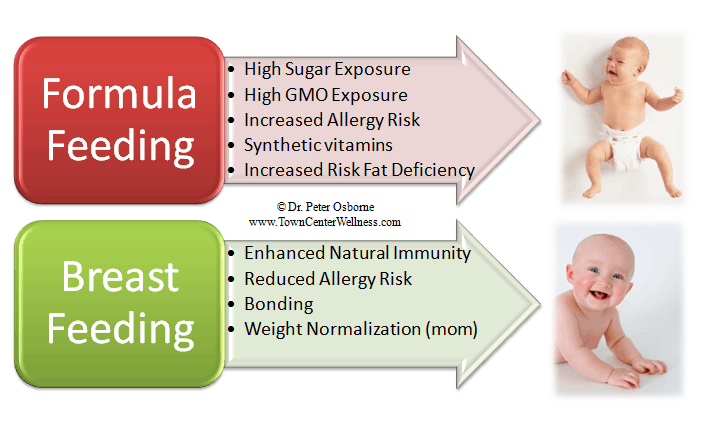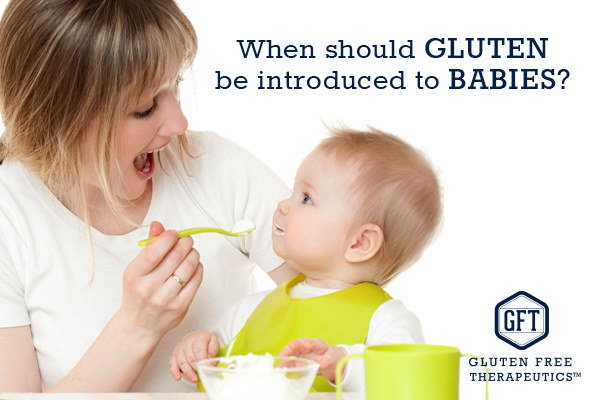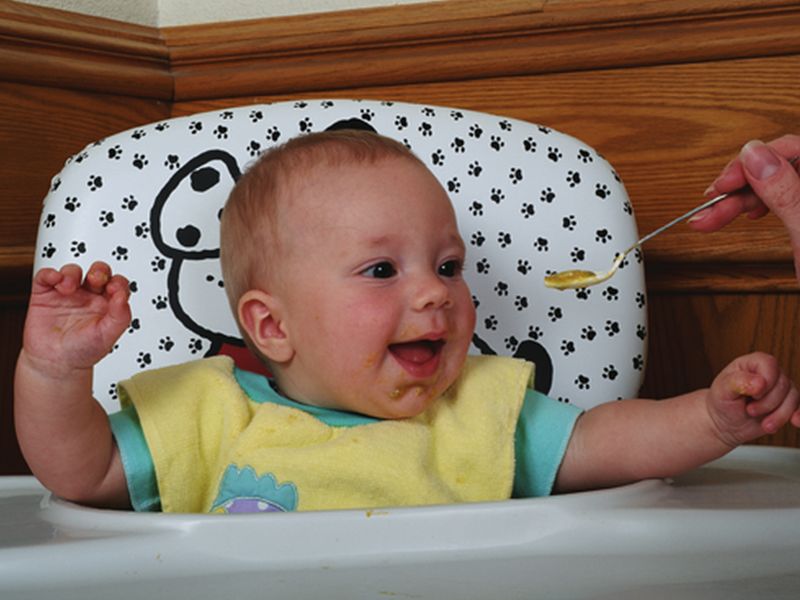celiac disease in breastfed babies
A systematic review Currently there is no evidence on the optimal breastfeeding duration or the effects of avoiding early gluten introduction in children at risk of CD. But CD patients can experience many non-gastrointestinal symptoms and a recent paper from Italy attempted to review how CD can affect the reproductive health of women.

Best Rear Facing Car Seat For Small Back Seat Car Seats Rear Facing Car Seat Baby Car Seats
While many people have varying opinions of whether or not breastfeeding can contribute to the onset of celiac new studies demonstrate some very important findings.

. Infants with celiac disease commonly have abdominal pain and diarrhea even bloody diarrhea and may fail to grow andor gain weight. Celiac disease or permanent gluten-sensitive enteropathy is an immunologic disease strictly dependent on exposure to wheat gluten or related proteins in rye and barley. Infant feeding and risk of developing celiac disease.
We always recommend that an infant be exposed to as many foods as possible again starting between 4 and 6 months of age. First you likely want to avoid introducing your baby to gluten until they are 6 months old. There is uncertainty whether being breastfed reduces risk.
If your baby is at a genetic risk to develop Celiac Disease it is a good idea to talk to your pediatrician to see if they have any specific recommendations. Coeliac disease celiac disease in. In the past CD was thought of as a childrens malabsorptive disease and was characterized by chronic diarrhea abdominal distension fatigue and vomiting.
Breast milk contains antibodies against all the antigens the mothers immune system has met prior to or during pregnancy. More data is needed to determine whether this is a true risk reduction or a delay in onset. Babies who become especially fussy or irritable may also be exhibiting signs of celiac disease.
The direct correlation between celiac disease and breastfeeding is a hot topic. Symptoms can vary and what is seen in one child may not be evident in another. The longer infants are breastfed the lower their risk of celiac disease.
Failure to thrive including a failure to gain weight or even weight loss Swollen stomach Diarrhea Constipation Irritability Fatigue. Babies in the study were fed two whole wheat biscuits per week before 6 months of. For coeliac disease to develop an adequate amount of gluten needs to be eaten regularly.
Maureen Leonard MD clinical director of the Center for Celiac Research and Treatment at Massachusetts General Hospital for Children in Boston says If breastfeeding is available we recommend it until 4 to 6 months of age. In addition one study showed the breastfeeding your infant particularly during the time of gluten introduction may significantly decrease their chance of. No it is not possible for a baby to develop coeliac disease while only being breastfed.
This means that it is only once gluten containing solids are introduced to the diet that it is possible for coeliac disease to occur in an infant. Infants Children with Celiac Disease Symptoms of celiac disease will not be apparent until approximately one to six months after introducing gluten-containing solid food to your baby. While it is always important to adhere to a strict gluten-free diet it is even more crucial when breastfeeding your baby.
The recommendations below are simply general food guidelines for food introduction. An epidemic of celiac disease among young children in Sweden during the 1980s and 1990s was attributed to a number of feeding practices thought to be conducive to the loss of tolerance to gluten including a lack of breastfeeding and high gluten content during its first introduction. Celiac disease in breastfed babies Sunday March 6 2022 Edit Even though it can affect older children rickets mostly affects infants and preschool children and can be present at birth congenital in babies born to a woman with low levels of vitamin D.
Breastfed babies have an increased quantity of bifidobacteria in their system. Young children may have abdominal pain with nausea and lack of appetite anemia not enough iron in the. While on a strict gluten-free diet celiac disease should in no way interfere with a healthy breastfeeding experience for you and your child.
The aim of this study was to explore whether breast-feeding and the mode of introducing dietary gluten influence the risk of celiac disease in childhood. Symptoms in babies can begin to develop when they begin to eat solid foods containing gluten. Children that had not yet tried gluten by 6 months of age were more likely to develop celiac disease.
The eating of gluten early in a babys life does not appear to increase the risk of coeliac disease but later introduction after 6 months may increase it. Children who develop celiac disease tend to have fewer healthy protective bacteria such as bifidobacterium and lactobacillus. The presence of gluten in the intestinal cells permits cells to accept gluten rather than getting inflamed.
Breastfeeding at the time of introduction to gluten did NOT appear to be protective. New data suggests that feeding babies gluten between the 4- and 6-month mark on a consistent basis may result in a reduced risk of developing celiac disease. Breastfed babies may gain weight and grow more slowly than formula-fed babies when they are aged 6 months to 1.
Delaying gluten introduction until 12 months of age reduces the risk of celiac disease. Symptoms include weight loss fatigue diarrhea constipation vomiting abdominal bloating and pain anemia and failure to thrive. Victims of the celiac disease do not have high amounts of bifidobacteria in the gut.
4 The notion of a window of tolerance was supported by a prospective cohort study that found. Symptoms of celiac disease in infants and toddlers include. In fact breastfeeding for longer than 12 months was associated with an increased risk although it was borderline significant P0046.
There is some evidence that breastfeeding is actually protective of babys gut encourages proper bacterial growth and provided much needed immunity and may significantly delay the onset of active celiac disease. Having Celiac Doesnt Mean You Cant Breastfeed. Women with celiac disease who fail to follow a gluten-free diet have been shown to breastfeed for a shorter period of time.
Prolonging breastfeeding until the introduction of gluten-containing grains into the. With celiac disease it means that if the mother has circulating antibodies to gliadin they will appear in the breast milk.

Monthly Baby Pictures In A Laundry Basket Monthly Baby Pictures Baby Month By Month Baby Pictures

Does My Baby Have A Gluten Allergy Parents

9 Benefits Of Pare For Coronary Artery Disease And Improve Heart Health Coutii Healthy Improve Heart Health Coronary Artery Disease Coronary Arteries

Coeliac Disease Gluten Allergies In Babies

Coeliac Disease Gluten Allergies In Babies

Does Breastfeeding Prevent Celiac Gluten Free Living

Should Women With Gluten Sensitivity Breast Feed Gluten Free Society

When Can Babies Start Eating Baby Food Cleveland Clinic

Does My Baby Have A Gluten Allergy Parents

Breastfeed Baby Weight Progression Chart Baby Growth Chart Baby Breastfeeding Breastfed Baby

When Should Gluten Be Introduced To Babies Gluten Free Therapeutics
/GettyImages-1008809966-fa2a1e6c7e0a426d8f87f2024f75e76e.jpg)
Study Feeding Babies Gluten May Reduce Risk Of Celiac Disease

Breast Milk Is Teeming With Bacteria That S Good For The Baby The New York Times

What Are The Effects Of Gluten In Breastmilk Lactation Mamas

Exposing Babies To Wheat Very Early Might Prevent Celiac Disease Study

Celiac Disease Wheat Allergy And Gluten Sensitivity In Children Babycenter Babycenter


